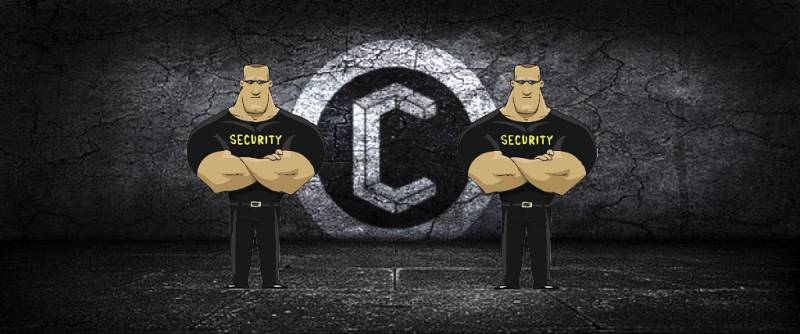Security
It is very important that you secure your funds and take every single measure possible to ensure the safety of your currency. This guide will go through some of the basic security measures every user should take.
As Conceal is a cryptocurrency, only you, the user, are able to access your wallet. This means that if you lose access to your wallet for any reason, no one will be able to recover it for you, your funds will be lost. Because of this, it is important that all users follow some basic precautions to minimize this risk. Keeping your investments secure and safe is the most important thing, even if it does come at the expense of convenience. Here are a few tips that will help keep your funds secure:
Safely store your private key and never share your private key
When creating a new Conceal wallet, you will be provided with a private key. A private key is the single most important method to access your wallet. Without your private key, you cannot access your crypto. Never keep your private key online, or as an email, or in the cloud. These methods are most susceptible to being hacked.
Ideally this private key should be written down on paper and stored in a safe place. To make it more secure you can laminate it and store it in a vault.
Another, less secure, alternative is to copy the private key to the clipboard and store it electronically. Be aware that some types of malware may have access to the clipboard which could lead to the private key being compromised.
If stored on the same device as the wallet itself, the private key backup would be useless in the case of ransomware or hardware failure, which caused access to the wallet to be lost in the first place. So, if an electronic copy is being used, storing the file on a USB drive would be a better approach.
Never, under any circumstance, should you ever share your Conceal wallet or private key with any person or software that you do not intend to take control of all of your assets.
Safely store your recovery phrase and never share your recovery phrase
When creating a new Conceal wallet, you will also be provided with a recovery phrase. This phrase allows you to recover the wallet if you lose access to it for any reason. Ideally this recovery phrase should be written down on paper and stored in a safe place. To make it more secure you can laminate it and store it in a vault.
Another, less secure, alternative is to copy the recovery phrase to the clipboard and store it electronically. Be aware that some types of malware may have access to the clipboard which could lead to the seed being compromised.
If stored on the same device as the wallet itself, the seed backup would be useless in the case of ransomware or hardware failure, which caused access to the wallet to be lost in the first place. So, if an electronic copy is being used, storing the file on a USB drive would be a better approach.
Never, under any circumstance, should you ever share your Conceal wallet or recovery phrase with any person or software that you do not intend to take control of all of your assets.
Never reuse passwords and logins
This goes without saying. If one of your accounts gets compromised, it's not hard to imagine the hacker can easily find your other accounts on various exchanges. Before you know it, your hard earned investments will have completely disappeared.
Use long, secure passwords
It might be a bit of a hassle to dig it up every time you want to login to trade or check your balances, but that process is much more seamless if you take advantage of secure, password managers that help you generate and remember every login/password for all exchanges you trade on.
Exchanges
By far, the riskiest method to store your cryptocurrency is on exchanges. The cryptocurrency golden rule is NOT YOUR KEYS, NOT YOUR FUNDS. Storing your crypto on exchanges keeps control of your funds in the hands of a third party. The exchange is holding your crypto in their wallets. They control the private keys, they control the recovery phrases. There are many examples of exchanges being hacked and clients losing their crypto.
Short-term storing of your crypto on exchanges for trading purposes is understandable. However, long-term storing of your crypto on exchanges should never be considered a secure option. Remember, NOT YOUR KEYS, NOT YOUR FUNDS.
Enable two-factor authentication (2FA)
This is the first thing anyone investing should immediately enable after you register on an exchange, or any location where you store your cryptocurrency. All exchanges have this option, so enable it! 2FA ensures that even if your login and password is compromised, hackers cannot get into your account unless they also enter a time-sensitive 6 digit code, that only you can access on your phone.
This is not an exhaustive list, but should be the very minimum of what you should be doing to secure your funds.

